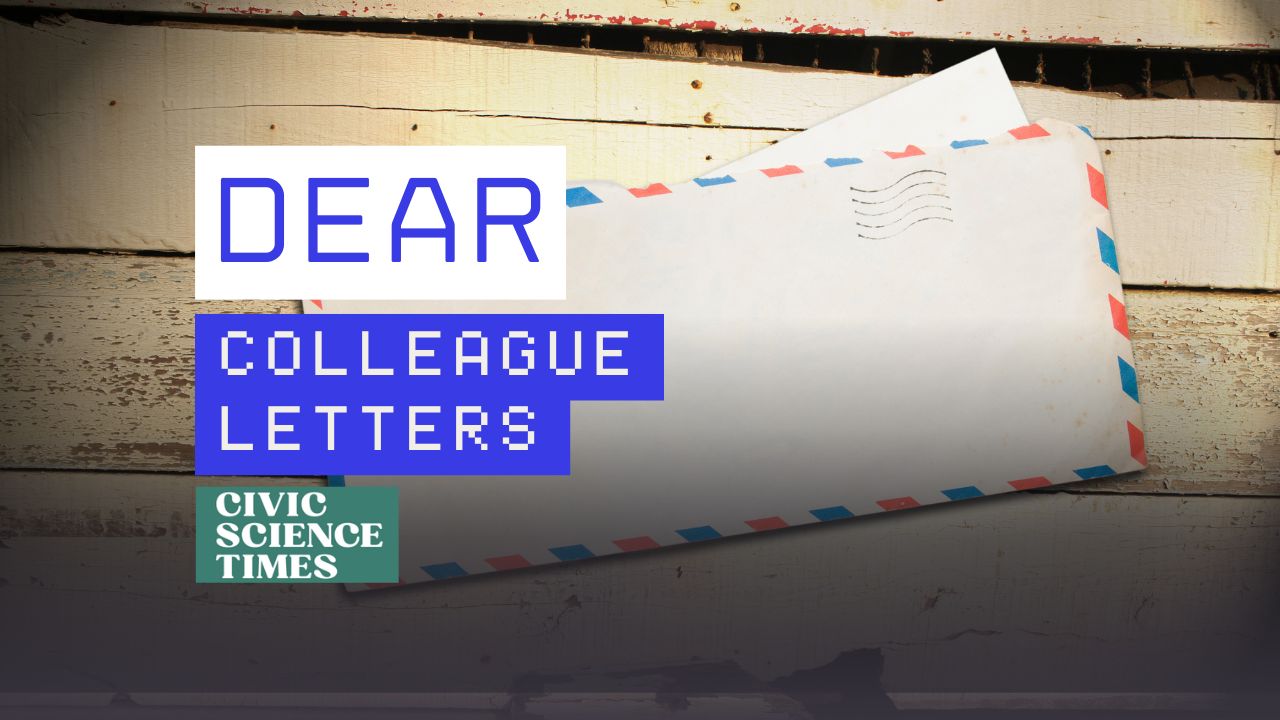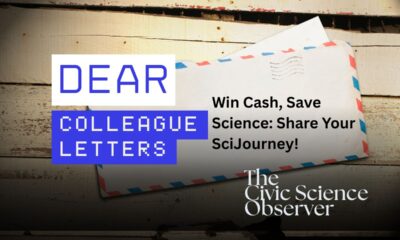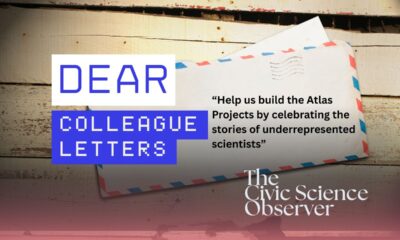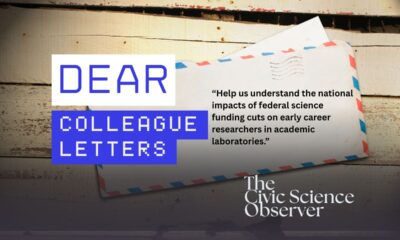Civic Science Observer
Opinion: A missed opportunity for science communication at the 2024 Olympics?

The Summer 2024 Olympics in Paris captivated the world as it was the first one that welcomed large crowds after the delayed 2020 Tokyo games. The Olympics generated double the traffic to media outlets compared to the 2020 games and incorporated AI and technology to support their athletes. However, despite these improvements there was a missed opportunity to include scientists and science communicators in their broadcasting efforts to enhance engagement with the public audience.
The Paris 2024 games were also unique in that they were the first that AI and big data were incorporated by the International Olympics Committee (IOC) as a part of the Olympic AI agenda. This is a part of the Olympic AI agenda launched in April 2024 that has five focus areas — supporting athletes, ensuring equal access to AI benefits, optimizing games operations, growing engagement with people, and increasing management efficiency for the IOC.
“AI can help to identify athletes and talent in every corner of the world. AI can provide more athletes with access to personalised training methods, superior sports equipment and more individualised programmes to stay fit and healthy. Beyond sporting performance, AI can revolutionise judging and refereeing, thereby strengthening fairness in sport. AI can improve safeguarding in sport. AI will make organising sporting events extremely efficient, transform sports broadcasting and make the spectator experience much more individualised and immersive.” — Thomas Bach, IOC President at an interactive event launching the AI Agenda
Science communication has increased in popularity particularly on TikTok. Since 2021, 15 million STEM related videos have been published globally and 33% of the US community is engaging with similar content on their dedicated feed. With the integration of AI and new technology into major sporting events there should be people who understand the science behind it and can share that with the decision makers and the public.
Incorporating science communicators and scientists could have enhanced viewing experiences for audiences. Science communicators could provide data driven analyses of the Olympic sporting events to increase civic science engagement but also trustworthiness of the broadcast.
For example, Simone Biles, a popular athlete and captain of the US women’s gymnastics team, has had the physics of her routines analyzed on platforms such as NPR. Having a similar analysis incorporated into the main broadcast of the women’s gymnastics team could have increased the impact and significance of the historic nature of her skillset.
@wired Today, Simone Biles is leading #TeamUSA into the Women's Artistic Team All-Around #Gymnastics finals in hopes of clinching a gold medal. But as the #GOAT of gymnastics, it's worth taking a closer look at the incredible #physics of Simone Biles' Yurchenko Double Pike, dubbed the 'Biles II' which she'll be showcasing today. @rhettallain0, associate professor of physics at Southeastern Louisiana University breaks it down. #yurchenkodoublepike #bilesII #simonebiles #parisolympics #olympics ♬ original sound – WIRED.COM
“Science and technology are — they’re a big part of our sport. All the athletes are wearing, you know, some type of a smart device on them. And sometimes it’s multiple devices that measure multiple different things. I would say the most basic is just a smartwatch or a computer that they put on their bikes. Those things then upload into software that we have online that analyzes everything.” — Ryan Bolton, Triathlon Coach in an interview with Scientific American.
Science and technology are nothing new to the Olympic athletes and their coaches. In fact, it seems that athletes and coaches rely on having their own personal data to improve their performance. Seeing as this is already incorporated into the Olympic games, this presents an opportunity to provide paid positions for scientists, science communicators, and practitioners to participate in sharing this knowledge with the public.
How can scientists, science communicators, and other practitioners have a greater role in mainstream media? Audiences are clearly seeing and engaging with STEM related content on social media. What are sources of funding that can be explored to provide these opportunities? What data and research is necessary to show the significance of having science communication be a part of major sporting events?
I am a bioengineer and content creator. I have a B.S. in Biomedical Engineering from Virginia Commonwealth University and a Bioengineering PhD from the University of Maryland, College Park.

-
 Audio Studio1 month ago
Audio Studio1 month ago“Reading it opened up a whole new world.” Kim Steele on building her company ‘Documentaries Don’t Work’
-
Civic Science Observer1 week ago
‘Science policy’ Google searches spiked in 2025. What does that mean?
-
Civic Science Observer1 month ago
Our developing civic science photojournalism experiment: Photos from 2025
-
Civic Science Observer1 month ago
Together again: Day 1 of the 2025 ASTC conference in black and white
Contact
Menu
Designed with WordPress

























